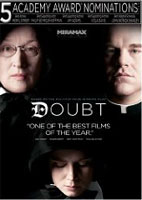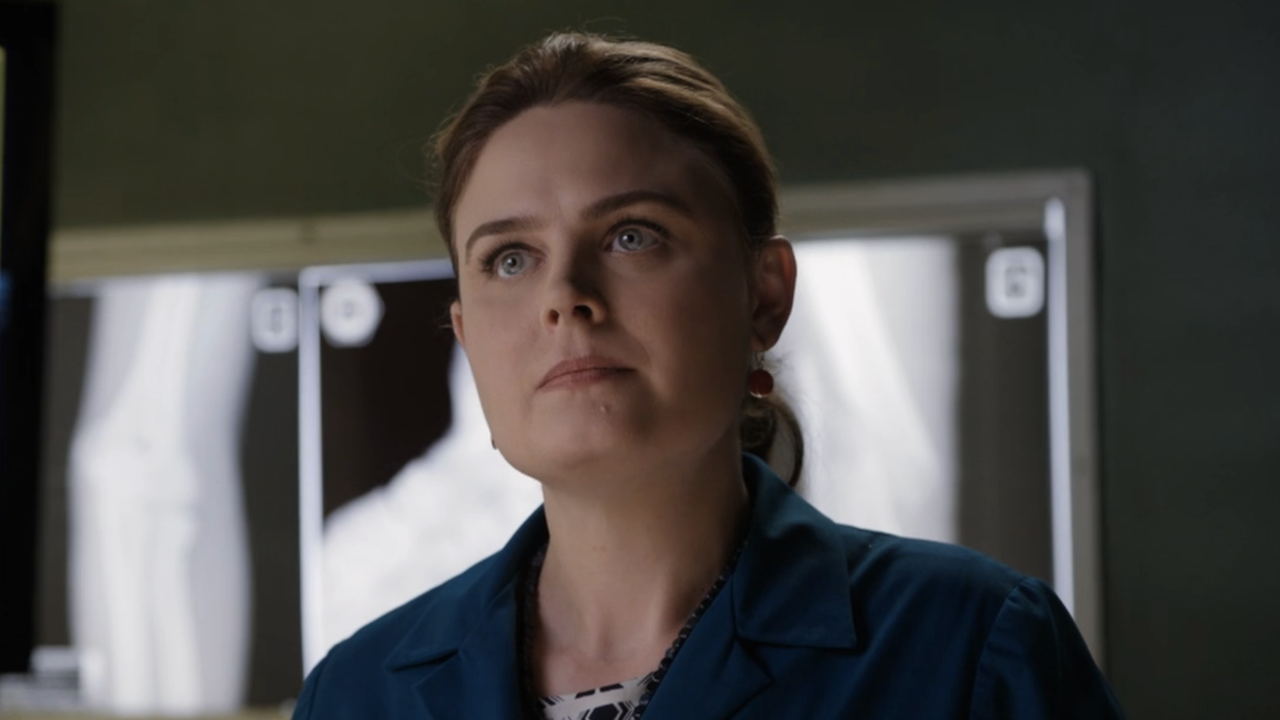Good actors with something interesting to say can take a film a long way. It can’t take a film all the way, but it can overcome a somewhat weak plot and an even weaker director and lift it up into something worth watching. A prime example of that is writer/director John Patrick Shanley’s adaptation of his own play. Doubt looks like a bit of bore, but strong performances by the leads make it worth watching. In bringing his play to the big screen, Shanley did quite a few things wrong but did one thing right: He hired an excellent cast (all four key actors received Academy Award nominations) and let them turn his documentation of the conflict between a Priest and a Nun at a Catholic school in the Bronx in 1964, into something real and relatable. Phillip Seymour Hoffman as Father Flynn and Meryl Streep as Sister Aloysius both take their characters beyond the obvious and clichéd and that makes their conflict all the more difficult.
Sister Aloysius is the principal of Saint Nicholas and a holy terror to every student. Streep starts out as a stereotype of iron certainty in right and wrong when it comes to her students and their need for discipline and moral rectitude. As the story unfolds however, she lets out the other parts of Sister Aloysius, the compassion, the humor, and her fierce understanding of how things work in her male dominated church. Father Flynn starts out as the very progressive and friendly embodiment of the “modern” church, but Hoffman gives shadings of the way in which his natural position and status can be used to intimidate or block when his actions come into question.
The source of conflict between these two strong figures is Flynn’s interest in the school’s first black student. Flynn calls him out of class and when he returns, his teacher, Sister James (Amy Adams), is concerned with his behavior. She takes her concerns to Sister Aloysius, who is certain the boy was molested despite having almost no proof. This sets off a battle between the two leads with Sister James in the middle. She represents the audience, without enough concrete evidence to either condemn or exonerate Father Flynn and left with (dare we say it) doubt. Is Sister Aloysius working to get rid of a pedophile, or just a threat to her traditional authoritarianism? The movie doesn’t give an easy answer.
This is, apparently, a talky play and it turns into a talky movie. That’s fine since the talking is being done by actors the caliber of Streep, Hoffman, Adams, and Viola Davis as the young boy’s mother. Unfortunately, Shanley’s decision to direct this movie (his first time since the awful Joe Versus the Volcano in 1990) almost, but not quite, ruins the performances of his cast. He uses lame camera tricks to bring weight to scenes but they are distracting and unneeded. It’s almost as though Shanley bought a ladder and decided, “hey, if I shoot from up here, that will make it all look weird and different and that’s good, right?” No, not always.
Shanley also fumbles in trying to turn a four character play into a fully cast movie. He doesn’t seem to know what to do with the boy, Donald Miller (Joseph Foster), so he does almost nothing with him. He gives Donald a fellow altar boy and semi-friend, Jimmy (Lloyd Clay Brown) and, again, does almost nothing with the character. It’s hard to see why he exists. On the plus side, he nails the period, but maybe that’s a tip of the hat to the production designer.
Doubt is an actor’s film and while it can be considered slow in places, that pace doesn’t lead to distraction. Watching Streep, Hoffman, Adams, and Davis, even shot from Shanley’s amateurish camera angles, is worth your time. Doubt was a relatively low-budget prestige movie, but the DVD, surprisingly, comes with a nice selection of extras. First off is a commentary by Shanley. He’s low-key and informative which is pretty much what you want from a commentary on a movie like this. Since the movie taps into his memories of growing up in Catholic school in the Bronx in the 1960’s, it’s interesting to hear him tie scenes and people back to his own life. He also talks about performances and the filmmaking process. A very well rounded effort.
The extras include a twenty minute making-of called “Doubt: From Stage to Screen.” Actually, the stage play is discussed very little, but all the major players in the movie comment. It doesn’t show much behind-the-scenes, but it does have what anyone looking for a basic making-of featurette would want. The title is a little odd and I would have liked more about the play, maybe comments from the actors who performed the roles on Broadway. Also, about 10 minutes in, it switches over to an interview of Streep by Shanley. Not a bad idea, but it comes across as forced.
Your Daily Blend of Entertainment News
After watching the first featurette, the one called “The Cast of Doubt” feels a superfluous. It’s hosted by a writer for an entertainment magazine and features a roundtable discussion with Streep, Hoffman, Adams, and Davis along with scenes from the film. It’s not that the material directly copies what is in “From Stage to Screen,” but it does give the same perspectives and doesn’t provide much that is fresh or new.
Also included is a four minute piece on the music called “Scoring Doubt.” It’s just what it sounds like and features composer Howard Shore. I didn’t really feel the music was particularly interesting or really stood out, but if you disagree or just find composer talk interesting, this is a well made extra.
The final item is about the order of Nuns portrayed in the film, the Sisters of Charity. Actual Nuns, including the model for the character Sister James, are interviewed about the order and life as a Nun. It’s pretty interesting if your only source of knowledge about a Nun comes from the “penguins” in The Blues Brothers.
Taken individually, nothing really bowls you over about this set of extras, but it isn’t bad for this type of film. Like the movie itself, there is enough to like in order to recommend it, even if it never rises above the level of pretty good.

